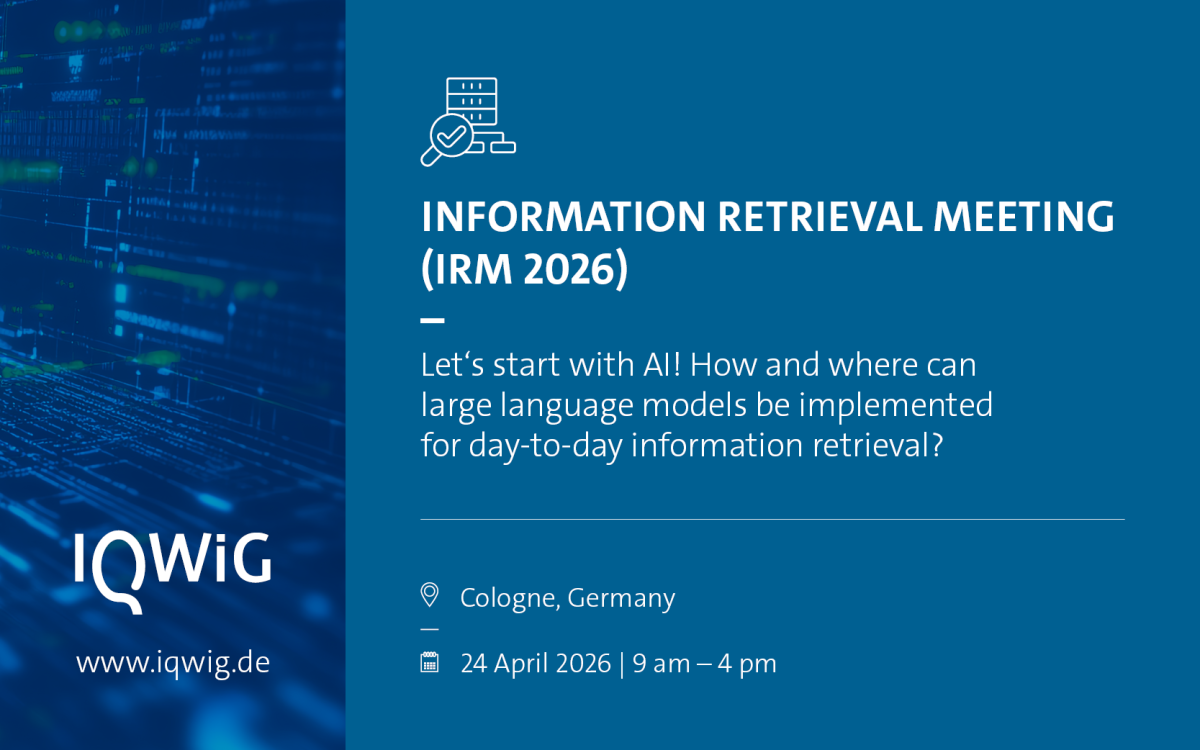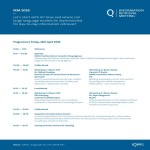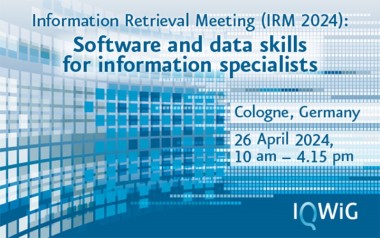Information Retrieval Meeting
IQWiG's 3rd Information Retrieval Meeting in Cologne
This is to inform you that the next Information Retrieval Meeting (IRM) will take place on 24 April 2026 in Cologne. The theme of the meeting is: ‘Let's start with AI! How and where can large language models be implemented for day-to-day information retrieval?’
You will hear exciting presentations from information specialists and other researchers who have already implemented AI in their information retrieval processes. We would also like to invite you to share and discuss examples in an additional interactive session. These 3-5 minute ‘snapshots’ could range from sandbox-type testing and experimentation to large-scale research projects.
Registration
Registration for this free event is now open – the closing date is 28 February 2026.
- Date/time: 24 April 2026, 9am to 4:15pm
- At: IQWiG, Siegburger Str. 237, 50679 Köln (Cologne), Germany : How to get here
- Contact: IRM@iqwig.de
- This event will be held in-person only and will not be streamed online.





